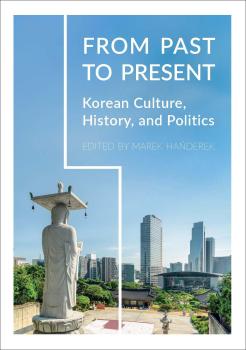From Past to Present: Korean Culture, History, and Politics
Słowa kluczowe:
Korean culture, history, politicsStreszczenie
This book consists of ten chapters written by scholars affiliated with research institutions in Poland, the Republic of Korea, Czechia, and Germany. The contributors are specialists in various academic disciplines, including cultural studies, history, political science, and linguistics. As a result, the volume offers an interdisciplinary approach to the Korean Peninsula and addresses a wide range of issues.
It provides readers with a valuable opportunity to explore lesser-known or overlooked aspects of Korean culture, history, and politics from the 20th and 21st centuries. Each chapter presents either an unexplored topic or a new perspective on subjects previously examined by other scholars.
This volume makes a meaningful contribution to the international development and dissemination of Korean Studies and represents one of the significant achievements of the Department of Korean Studies at the Institute of the Middle and Far East of the Jagiellonian University in Kraków in this field.
Rozdziały
-
SPIS TREŚCI
-
Introduction .......... 7
-
CULTURE AND HISTORY AFFECTING POLITICS
-
The Dispute over Hyǒmnyulsa: The Political and Social Implications of Korea’s First Theater .......... 13
-
The Origin, Development and Aftermath of the Pyongyang Great Protestant Revival of 1907 .......... 29
-
Intergenerational Memory and Pursuit of Justice for South Korean Prisoners of War and Abduction Victims to North Korea .......... 57
-
Reaching North Korea through Buddhism: An Overview of South-North Buddhist Exchange .......... 75
-
REPUBLIC OF KOREA AND ITS DOMESTIC PROBLEMS
-
Everyday Life of Koreans under Chun Doo-hwan’s Military Dictatorship .......... 95
-
Labor Market Policy in the Republic of Korea: Challenges in the Context of Labor Market Segmentation .......... 109
-
An Analog Parasite of the Hyperdigital Era? The Reading-Aloud Wave in Contemporary Korea .......... 131
-
KOREAN STATES, KOREANS, AND THEIR FOREIGN PARTNERS
-
The North Korean Diaspora in Poland in the 1950s .......... 153
-
North Korean Unification Policy .......... 179
-
Russia’s Invasion of Ukraine and Its Impact on Japan-South Korea Security Cooperation .......... 191
Downloads
Bibliografia





